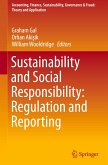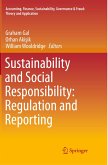In 2020, UK Prime Minister Boris Johnson launched The Green Jobs Taskforce, which extended and articulated the green jobs policy of his government and its position within conservative political ideology. This book critically highlights gaps in the political and business decision-making of his Taskforce, most notably on: the limited role of employers and HRM associations in skills building for staff in non-polluter industries (solar and wind); issues of a fair and just transition for workers losing jobs in the polluter industries (fossil fuels); and the lack of employee voice in both work arenas. The overtly pro-conservative and political nature of this UK Taskforce is also analyzed, which occurs and operates in opposition to British trade unions and the wider labor movement, by not prioritizing the just transition, alongside the extensive skills, training and passporting requirements that British workers need to gain decent, green jobs.
This book is distinctive in offering the first in-depth analysis and critique of the UK Green Jobs Taskforce, in examining this Taskforce using conservative political ideas, and by critiquing it too. Little academic literature is available globally on the business impact and analysis of UK governmental sustainability policy, and this study can provide wider learning points, lessons and implications for other green job plans being formed and enacted in the EU, USA and other countries. It will be of great interest to academics and students of sustainability, HRM, organizational behavior, organization studies and employment relations.
This book is distinctive in offering the first in-depth analysis and critique of the UK Green Jobs Taskforce, in examining this Taskforce using conservative political ideas, and by critiquing it too. Little academic literature is available globally on the business impact and analysis of UK governmental sustainability policy, and this study can provide wider learning points, lessons and implications for other green job plans being formed and enacted in the EU, USA and other countries. It will be of great interest to academics and students of sustainability, HRM, organizational behavior, organization studies and employment relations.








